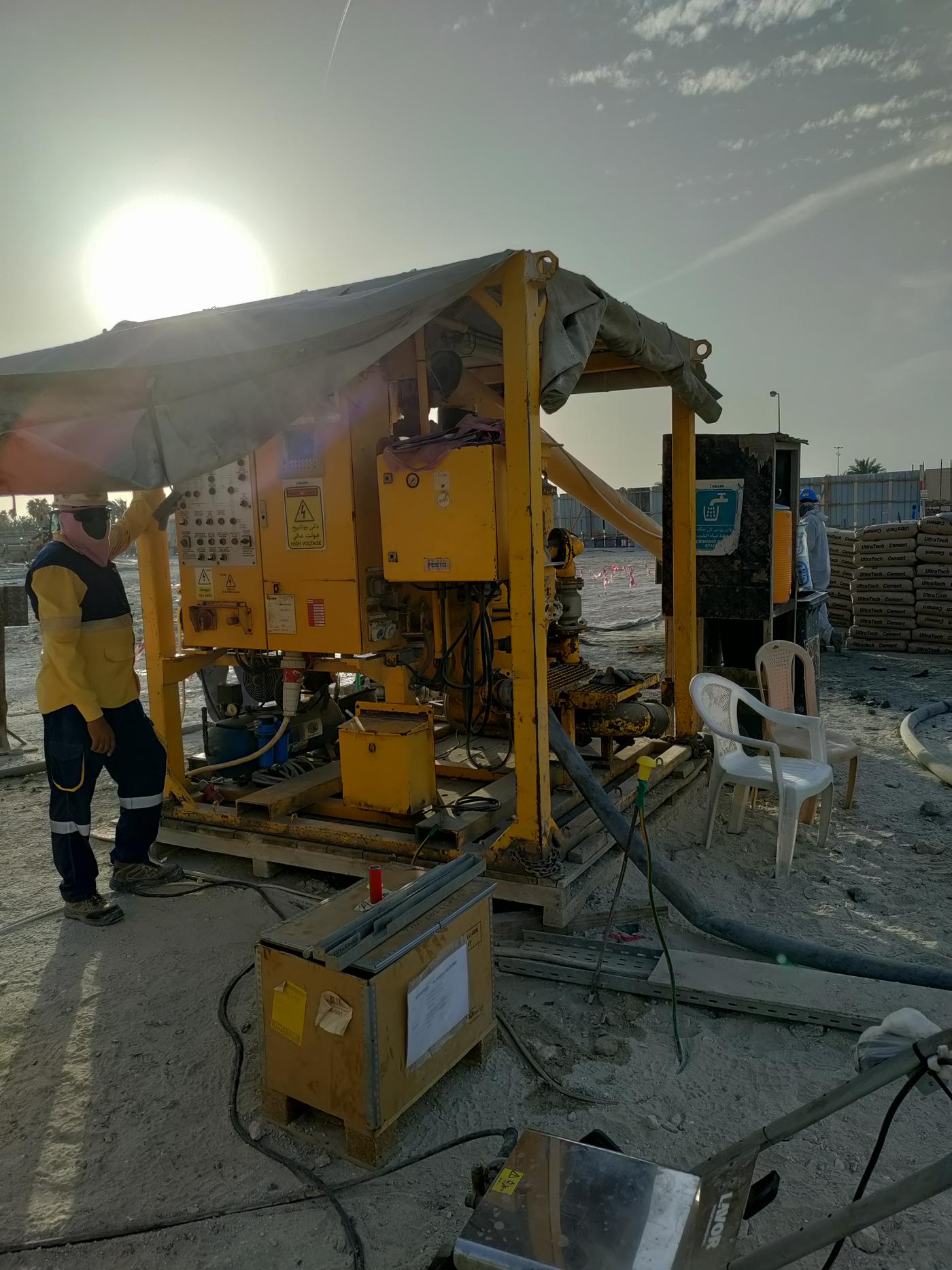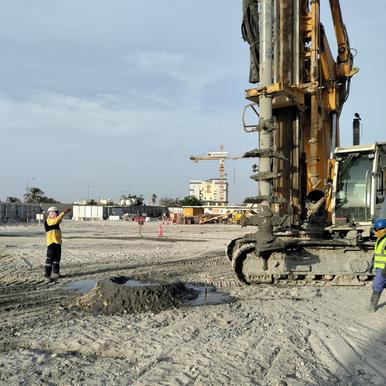This local initiative reflects our work on water-related projects, as well as our own initiatives to reduce water use and avoid water pollution.
Reducing water use and avoiding water pollution
In terms of our solutions, we work on a number of water-related projects around the world. From installing the foundations of flood defences to grouting around dams, Keller is involved in many projects to help mitigate the effects of drought and sea level rise.
This work will only increase with the physical risks and opportunities arising from climate change. We also offer solutions to help remediate contaminated ground water. This includes solutions such as slurry cut off walls, as well as innovations like our Halocrete® grouting solution.
When it comes to our own operations, we focus on water reduction on key projects and countries where water is less available. We have a Keller employee in Keller Bahrain carrying out a PhD focused on operationalising water reduction initiatives in our design and site operations. Similarly, we are also contributing to cross-sector trade association work on water reduction, highlighting upcoming legislation and best practices in our sector.


Case study
Setting sights on water reduction

As water availability becomes an increasingly important topic for many parts of the world, Keller is leading the industry by carrying out research into how we use water – and looking at ways we can reduce its consumption.
Bahrain is one of the most water-scarce countries in the world. There are no rivers or lakes, its groundwater is rapidly depleting and the hot climate leads to high rates of evaporation. As a result, the kingdom relies heavily on desalinated water to meet demand for its 1.5 million population – an energy-intensive process with a high carbon footprint.
As a sustainability-conscious company, Keller wants to support Bahrain in its efforts to reduce water use as much as possible. But how can we do that when we rely on large volumes of water in our operations? That’s a question Design and Estimation Engineer Vinothkumar Manivannan is looking to answer.
Setting a baseline
“There’s a real lack of research into water consumption in geotechnical products – there’s no data available,” he explains. “So our initial goal is to understand the quantity of water required for products including piling, secant pile walls and deep soil mixing (DSM). We’re also looking at the water we use in our yards to clean machines and in worker accommodation. Once we have this baseline we can then identify areas to optimise consumption.”
Vino is carrying out the research as part of his business doctorate, along with Keller Technical Director Dr Nicol Chang. The results so far include recording over half a million litres of water used on a DSM column project located in Tubli – the equivalent of a fifth of an Olympic-sized swimming pool. Vino calculated that 550 litres were used per m3. Of this, 320 litres per m3 were needed for the slurry and around 225 litres per m3 were used for related site washing and cleaning, along with washing equipment in the yard.
Vino believes that while it will be difficult to reduce water in some of our products, there is scope to explore the ways Keller uses it in cleaning, whether that’s through more efficient equipment or processes.
Water reporting across the world
Of course, the Middle East isn’t the only region in the world where this matters. Upcoming legislation in the European Union will soon require businesses to report water use, which means Keller will need to show that it’s not having a negative impact if it wants to access certain key projects and funding.
The EU Corporate Sustainability Recording Directive means Germany and Poland will need to explain or disclose water use in 2024, followed by all Keller Europe businesses in 2026 and the entire Keller Group in 2028.
With this increased focus, Keller has recently introduced water use as a local initiative under the Planet strand of its four Ps approach to sustainability. All of Keller’s global and local initiatives relate to UN Sustainable Development Goals.
“Right now we’re supporting individual business units where water use is particularly relevant to their local market,” says Luke Deamer, Keller Group’s Sustainability Manager. “We simply don’t know how much water we use, which is why Vino’s research is so important because it helps us build a picture. Today it’s about awareness building and starting to share best practice, but there’s no doubt this will become a more urgent issue throughout the world in the coming years.”
Industry-wide guidance
Luke says Keller has already started to find ways of cutting water use as part of wider sustainability projects that also reduce carbon. For example, centrifuges and filters have been used on jet grouting projects to remove the water from the spoil and reuse it, also reducing waste. Spoil has also been reused in some projects because of its high cement content. Other ideas Luke suggests could include designing for water-free solutions, like stone columns, and using mats to capture and reuse water wash-off during cleaning.
On a wider scale, Keller is supporting the sector in setting water-reduction guidance. Luke and Keller North America’s Kimberly Martin are heading an industry-wide task force that will produce function-specific guidance and best practice. A first draft of the water-reduction guide will be published by the European Federation of Foundation Contractors and the Deep Foundations Institute at the end of the year.
Keller works on many water-related projects, from dams and treatment works to a growing number of flood-defence programmes. Water is becoming a hot topic and if access to it becomes more challenging and expensive, that poses a risk to our business. We need water to operate, so it’s only right that as a responsible company we take the initiative now.”
Group Sustainability Manager